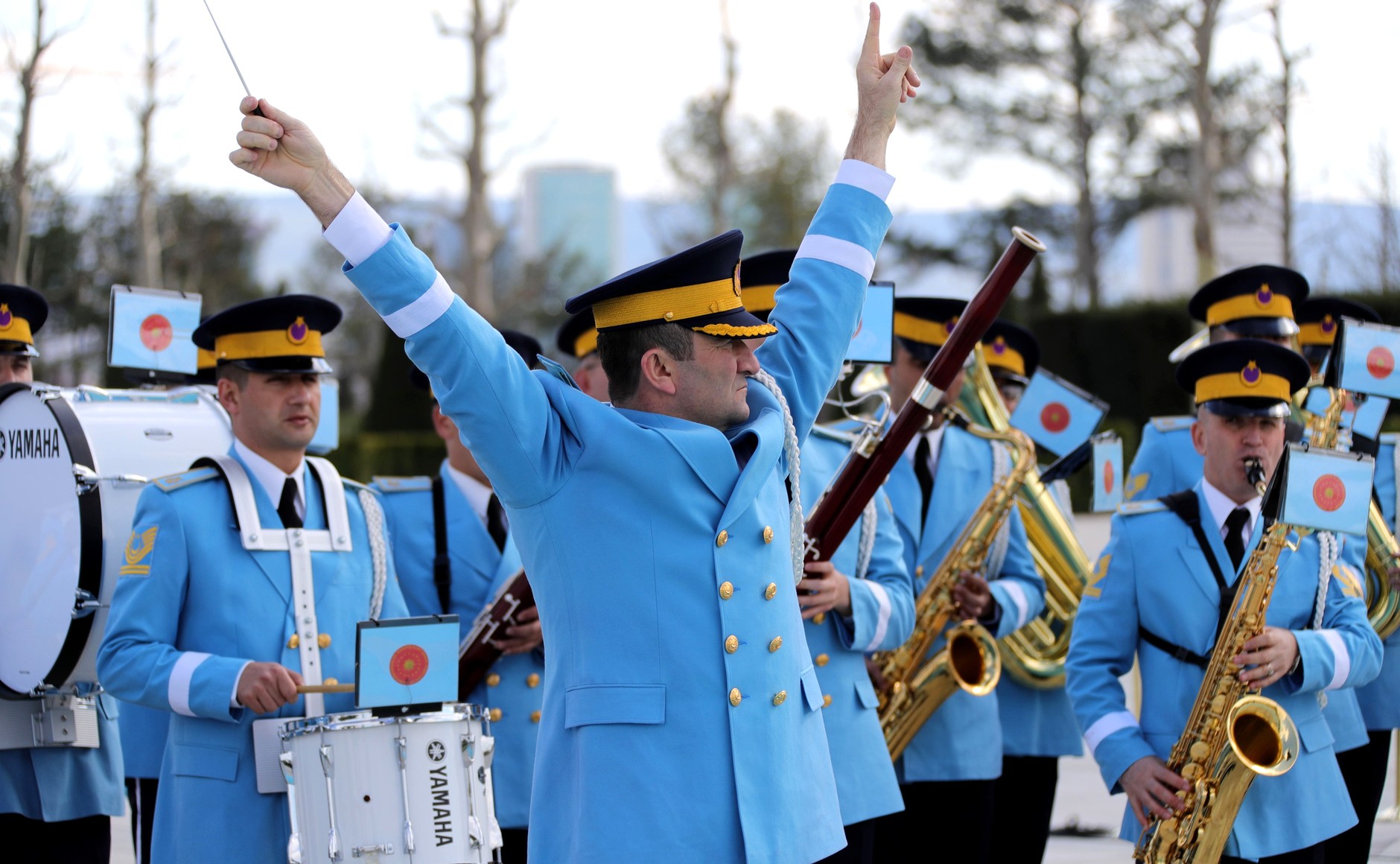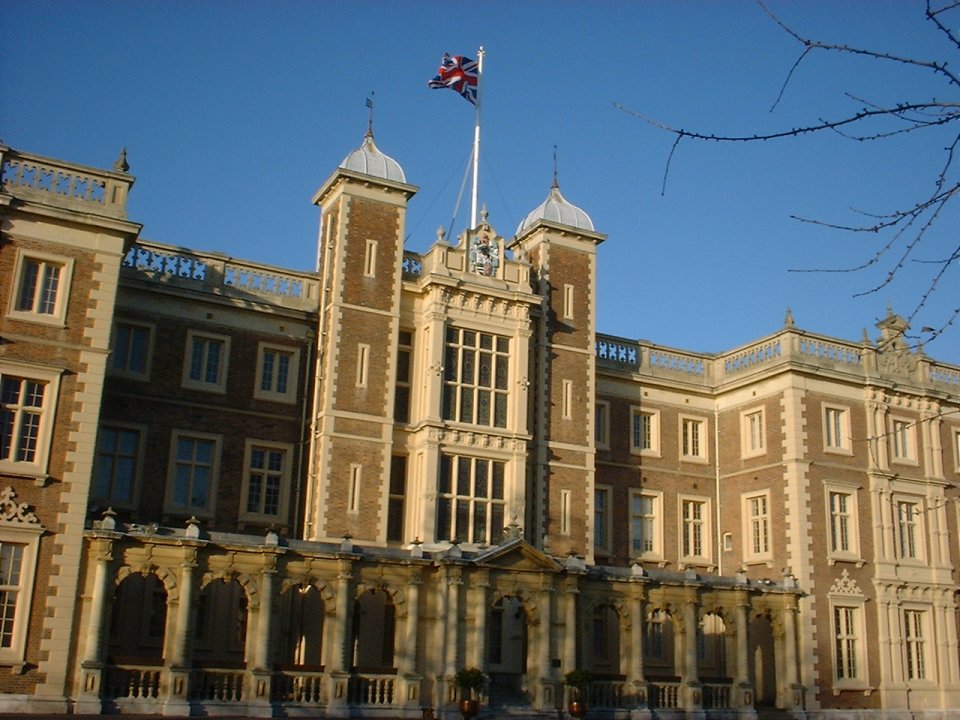|
Gérald Gagnier
Gérald Gagnier (14 October 1926 – 14 January 1961) was a Canadian bandmaster, composer, and trumpeter. His compositional output includes the symphonic poem ''Polyphème'', a ''Prélude'' for piano, a ''Suite romantique'' for strings, and ''Rolandineries'' for piano. Life and career Born in Montreal, Gagnier was the son of musician René Gagnier and received his earliest musical training in the trumpet, piano, and music theory from him. His grandfather Joseph Gagnier had 26 children, many of whom also became professional musicians of note; including Armand Gagnier, Ernest Gagnier, Guillaume Gagnier, J.-J. Gagnier, Lucien Gagnier, Réal Gagnier, and René Gagnier. Several of his cousins became notable musicians, including Claire Gagnier, Ève Gagnier, and Roland Gagnier. He attended the Séminaire Saint-Joseph de Trois-Rivières from 1939 to 1945 where he received his general education. In 1945 Gagnier entered the Conservatoire de musique du Québec à Montréal where ... [...More Info...] [...Related Items...] OR: [Wikipedia] [Google] [Baidu] |
Bandmaster
A bandmaster is the leader and conductor of a band, usually a concert band, military band, brass band or a marching band. British Armed Forces In the British Army, bandmasters of the Royal Corps of Army Music now hold the rank of staff sergeant, warrant officer class 2 or warrant officer class 1. A commissioned officer who leads a band is known as the director of music. Directors of music are all former bandmasters who have been commissioned. All bandmasters initially joined the Army as musicians and were selected for bandmaster training from non-commissioned rank (usually having reached the rank of at least corporal). However, unlike most NCOs, bandmasters are promoted directly to staff sergeant on completion of their bandmaster training and have not necessarily worked their way through all the intervening ranks. British Army line infantry and cavalry regimental bands were led by bandmasters until the reorganisation of bands and the creation of the Corps of Army Mu ... [...More Info...] [...Related Items...] OR: [Wikipedia] [Google] [Baidu] |
Séminaire Saint-Joseph De Trois-Rivières
The Séminaire Saint-Joseph de Trois-Rivières is a private school, private scholar institution in the Regions of Quebec, Quebec region of Mauricie. Located in Trois-Rivières, Quebec, Canada, it is, within the unique Education in Quebec, Quebec education system, a secondary school. Historically religious, it is now relatively secular but still holds many links with the religious and its community. History The roots of the ''Séminaire'' are found in 1860, when was founded the ''Collège des Trois-Rivières''. Saint Joseph was then chosen as patron saint and ''Religion et Patrie'' (or ''Religioni et Patriae'', referring to the Christianity, Christian faith and the Quebec nationalism, Quebec homeland) as motto. In 1874, the college is given to the care of the Trois-Rivières diocese. The latter makes it then its own diocese seminary and bestows upon it the denomination of ''Séminaire Saint-Joseph des Trois-Rivières''. The old tradition of calling the city ''les Trois-Rivières'' ... [...More Info...] [...Related Items...] OR: [Wikipedia] [Google] [Baidu] |
Canadian Male Composers
Canadians (french: Canadiens) are people identified with the country of Canada. This connection may be residential, legal, historical or cultural. For most Canadians, many (or all) of these connections exist and are collectively the source of their being ''Canadian''. Canada is a multilingual and multicultural society home to people of groups of many different ethnic, religious, and national origins, with the majority of the population made up of Old World immigrants and their descendants. Following the initial period of French and then the much larger British colonization, different waves (or peaks) of immigration and settlement of non-indigenous peoples took place over the course of nearly two centuries and continue today. Elements of Indigenous, French, British, and more recent immigrant customs, languages, and religions have combined to form the culture of Canada, and thus a Canadian identity. Canada has also been strongly influenced by its linguistic, geographic, and e ... [...More Info...] [...Related Items...] OR: [Wikipedia] [Google] [Baidu] |
Alumni Of The Royal Military School Of Music
Alumni (singular: alumnus (masculine) or alumna (feminine)) are former students of a school, college, or university who have either attended or graduated in some fashion from the institution. The feminine plural alumnae is sometimes used for groups of women. The word is Latin and means "one who is being (or has been) nourished". The term is not synonymous with "graduate"; one can be an alumnus without graduating (Burt Reynolds, alumnus but not graduate of Florida State, is an example). The term is sometimes used to refer to a former employee or member of an organization, contributor, or inmate. Etymology The Latin noun ''alumnus'' means "foster son" or "pupil". It is derived from PIE ''*h₂el-'' (grow, nourish), and it is a variant of the Latin verb ''alere'' "to nourish".Merriam-Webster: alumnus .. Separate, but from t ... [...More Info...] [...Related Items...] OR: [Wikipedia] [Google] [Baidu] |
1961 Deaths
Events January * January 3 ** United States President Dwight D. Eisenhower announces that the United States has severed diplomatic and consular relations with Cuba (Cuba–United States relations are restored in 2015). ** Aero Flight 311 (Koivulahti air disaster): Douglas DC-3C OH-LCC of Finnish airline Aero crashes near Kvevlax (Koivulahti), on approach to Vaasa Airport in Finland, killing all 25 on board, due to pilot error: an investigation finds that the captain and first officer were both exhausted for lack of sleep, and had consumed excessive amounts of alcohol at the time of the crash. It remains the deadliest air disaster to occur in the country. * January 5 ** Italian sculptor Alfredo Fioravanti marches into the U.S. Consulate in Rome, and confesses that he was part of the team that forged the Etruscan terracotta warriors in the Metropolitan Museum of Art. ** After the 1960 military coup, General Cemal Gürsel forms the new government of Turkey (25th government). * ... [...More Info...] [...Related Items...] OR: [Wikipedia] [Google] [Baidu] |
1926 Births
Events January * January 3 – Theodoros Pangalos declares himself dictator in Greece. * January 8 **Abdul-Aziz ibn Saud is crowned King of Hejaz. ** Crown Prince Nguyễn Phúc Vĩnh Thuy ascends the throne, the last monarch of Vietnam. * January 12 – Freeman Gosden and Charles Correll premiere their radio program ''Sam 'n' Henry'', in which the two white performers portray two black characters from Harlem looking to strike it rich in the big city (it is a precursor to Gosden and Correll's more popular later program, ''Amos 'n' Andy''). * January 16 – A BBC comic radio play broadcast by Ronald Knox, about a workers' revolution, causes a panic in London. * January 21 – The Belgian Parliament accepts the Locarno Treaties. * January 26 – Scottish inventor John Logie Baird demonstrates a mechanical television system at his London laboratory for members of the Royal Institution and a reporter from ''The Times''. * January 29 – Eugene O'Neill's ... [...More Info...] [...Related Items...] OR: [Wikipedia] [Google] [Baidu] |
Royal Canadian Ordnance Corps Band
The Royal Canadian Ordnance Corps (RCOC; french: Corps royal canadien des munitions, ''CRCM'') was an administrative corps of the Canadian Army. The Royal Canadian Ordnance Corps RCOC can trace its roots back to the Canadian Stores Department. Formed in 1871, the Canadian Stores Department was a civil department of the Canadian Government. This civil service was charged with control of forts, ammunition, stores, buildings and an ordnance depot left by the departing British Military. On 1 July 1903 the responsibilities of the Canadian Stores Department were transferred to the Ordnance Stores Corps. In 1907 it was renamed the Canadian Ordnance Corps (COC). World War I In the First World War the COC, in conjunction with the CASC, was supporting 400,000 men, 150,000 French civilians and 25,000 horses. In 1919, for recognition of outstanding service during the War, King George V authorized the “Royal” designation. World War II The Militia component of the now-Royal Canad ... [...More Info...] [...Related Items...] OR: [Wikipedia] [Google] [Baidu] |
Fusiliers Mont-Royal
Les Fusiliers Mont-Royal is a Primary Reserve infantry regiment of the Canadian Army. Lineage File:FMR Colours.jpg, The regimental colour of Les Fusiliers Mont-Royal. File:FMR Camp Flag.jpg, The camp flag of Les Fusiliers Mont-Royal. File:Fusiliers Mont-Royal2.JPG, Fusiliers Mont-Royal entrance Les Fusiliers Mont-Royal originated in Montreal, Quebec on 18 June 1869 as ''The Mount Royal Rifles''. It was redesignated as the ''65th Battalion, Mount Royal Rifles'' on 5 November 1869, as the ''65th Regiment "Mount Royal Rifles"'' on 8 May 1900 as the ''65th Regiment "Carabiniers Mont-Royal"'' on 1 August 1902, as ''Les Carabiniers Mont-Royal'' on 29 March 1920, as ''Les Fusiliers Mont-Royal'' on 15 April 1931, as the ''2nd (Reserve) Battalion, Les Fusiliers Mont-Royal'' on 7 November 1940 and finally as ''Les Fusiliers Mont-Royal'' on 15 November 1945. Upon redesignation as Les Carabiniers Mont-Royal on 29 March 1920 it was organized as a two-battalion regiment with the 1st Battalion ... [...More Info...] [...Related Items...] OR: [Wikipedia] [Google] [Baidu] |
Opéra National Du Québec
This is a glossary list of opera genres, giving alternative names. "Opera" is an Italian word (short for "opera in musica"); it was not at first ''commonly'' used in Italy (or in other countries) to refer to the genre of particular works. Most composers used more precise designations to present their work to the public. Often specific genres of opera were commissioned by theatres or patrons (in which case the form of the work might deviate more or less from the genre norm, depending on the inclination of the composer). Opera genres are not exclusive. Some operas are regarded as belonging to several. Definitions Opera genres have been defined in different ways, not always in terms of stylistic rules. Some, like opera seria, refer to traditions identified by later historians,McClymonds, Marita P and Heartz, Daniel: "Opera seria" in ''The New Grove Dictionary of Opera'', ed. Stanley Sadie (London, 1992) and others, like Zeitoper, have been defined by their own inventors. Other form ... [...More Info...] [...Related Items...] OR: [Wikipedia] [Google] [Baidu] |
Canadian Grenadier Guards Band
The Canadian Grenadier Guards Band (sometimes referred to as His Majesty's Canadian Grenadier Guards Band) was a Canadian military band that was active for more than 60 years during the 20th century. In addition to performing for military events, the band had an active concert schedule which brought them to performance venues throughout North America. The group also made several recordings on a variety labels and appeared on numerous radio broadcasts in both Canada and the United States. History The Canadian Grenadier Guards Band (CGGB) was founded in Montreal on 26 April 1913 through the financial support and initiative of Frank Stephen Meighen. The regimental band's initial purpose was to accompany parades and other regimental activities. However, while the group performed this function, they became more well known for their performances as a concert band. The ensemble played an unusually varied repertoire for a band of its time period, playing both new music and works by major ... [...More Info...] [...Related Items...] OR: [Wikipedia] [Google] [Baidu] |
Royal Military School Of Music
The Royal Military School of Music (RMSM) trains musicians for the British Army's fourteen regular bands, as part of the Royal Corps of Army Music. Until August 2021, the school was based at Kneller Hall in Twickenham, however it moved to HMS Nelson in Portsmouth following closure of Kneller. History The RMSM was established in 1857 at the instigation of Prince George, Duke of Cambridge, who was Queen Victoria's cousin and commander-in-chief of the army. In 1854, during the Crimean War, he attended a parade in Scutari, Turkey to celebrate the Queen's birthday, where approximately 20 British Army bands on parade were required to combine in a performance of the national anthem. The custom at this time was for regiments to hire civilian bandmasters, each of whom had free rein in their band's instrumentation and arrangements. With each band playing ''God Save the Queen'' simultaneously in different instrumentations, pitches, arrangements and key signatures, the result was an emb ... [...More Info...] [...Related Items...] OR: [Wikipedia] [Google] [Baidu] |





